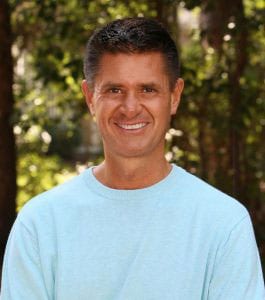I have lived with chronic pain from a neurological movement disorder called dystonia for nearly 20 years. It reminds me of the bully who picks on kids in the schoolyard every day. Like the bully, chronic pain does not follow any rules, and after multiple beatings, we can lose our sense of self. It is not uncommon to then feel weak and not as worthy as others, or as worthy as we once were. To make things worse, we too often beat ourselves up if we don’t measure up to our former selves. This is a HUGE challenge for many of us with chronic pain to overcome, but we must end this personal torture. Chronic pain beats us up enough without us adding to it.
This may come as a surprise, but in many ways, I think we are stronger than we were before chronic pain entered our lives. If you deal with chronic pain, it has probably been one of the greatest challenges of your life, as it has mine. It takes a special person to cope with all we do and persevere every day. If we continue to get up every morning and try to make a life for ourselves, to the best of our ability given our circumstances, we are doing far more than we often give ourselves credit for.
Chronic pain can be so brutal that we sometimes wonder if it is even worth getting out of bed, especially if you also suffer from depression and anxiety. But you do push on, and that needs to be honored.
If you go a step further and take a shower, eat breakfast, check emails… whatever it may be, honor that! Acknowledge every effort! It doesn’t matter what your life was before. What matters is what your life is now, in this very moment, and everything you do to make it the best you possibly can. Life before was easier for most of us. DON’T use that as your measuring stick. Measure yourself against your darkest moments and the progress you make, no matter how big or small.
People often tell me they don’t feel they have not accomplished anything since they developed dystonia, chronic pain, or other health issue; that they feel like they are “not enough.” This is an inaccurate and harmful perspective.
Is it not an accomplishment to carry on with life and still seek happiness when dealing with chronic health issues? I bet you seek it and value it more now than you ever did. This shows massive character and integrity.
The mental strength it takes to persevere in the face of adversity is far more an accomplishment than living a life with few obstacles, or obstacles that are easily overcome, as many were before life with chronic illness. Acknowledge your willingness to keep living as fulfilling a life as possible and stop beating yourself up. We all need to vent and grieve. However, if we are always angry, it increases stress which increases symptoms, and no amount of anger will ever make our illness go away. It will actually make it worse.
When the Japanese mend broken objects, they aggrandize the damage by filling the cracks with gold. They believe that when something has suffered damage and has history, it becomes more beautiful. The gold is not meant to fix us. It is meant to add a new dimension to our being, much like when we are forced, by change or circumstance (chronic pain, dystonia, etc.), to create a new life.
By doing so, we become more willing and able to accept any situation. When we come to understand and accept that life is difficult, we learn to be okay with what is not okay… and this, I promise all of you, is the key to healing. It took me the first 10 years suffering with dystonia to come to this realization, and it has changed my life. Please read my book to learn how I do this, as well as the many patient testimonials I have included to see what others have done.
As it says in the opening paragraph in the book, The Road Less Traveled, by M. Scott Peck: “Life is difficult. This is a great truth, one of the greatest truths. It is a great truth because once we truly see this truth, we transcend it. Once we truly know that life is difficult – once we truly understand and accept it – then life is no longer difficult. Because once it is accepted, the fact that life is difficult no longer matters.”
Edited excerpt from: Diagnosis Dystonia: Navigating the Journey.
 About the Author: Tom Seaman is a Certified Professional Life Coach in the area of health and wellness, and author of the book, Diagnosis Dystonia: Navigating the Journey. He is also a motivational speaker, chronic pain and dystonia awareness advocate, health blogger, and volunteers for the Dystonia Medical Research Foundation (DMRF) as a support group leader, for WEGO Health as a patient expert panelist, and is a member and writer for Chronic Illness Bloggers Network. To learn more about Tom, subscribe to his free health newsletter, and get a copy of his book, visit www.tomseamancoaching.com. Follow him on Twitter @Dystoniabook1 and Instagram
About the Author: Tom Seaman is a Certified Professional Life Coach in the area of health and wellness, and author of the book, Diagnosis Dystonia: Navigating the Journey. He is also a motivational speaker, chronic pain and dystonia awareness advocate, health blogger, and volunteers for the Dystonia Medical Research Foundation (DMRF) as a support group leader, for WEGO Health as a patient expert panelist, and is a member and writer for Chronic Illness Bloggers Network. To learn more about Tom, subscribe to his free health newsletter, and get a copy of his book, visit www.tomseamancoaching.com. Follow him on Twitter @Dystoniabook1 and Instagram


